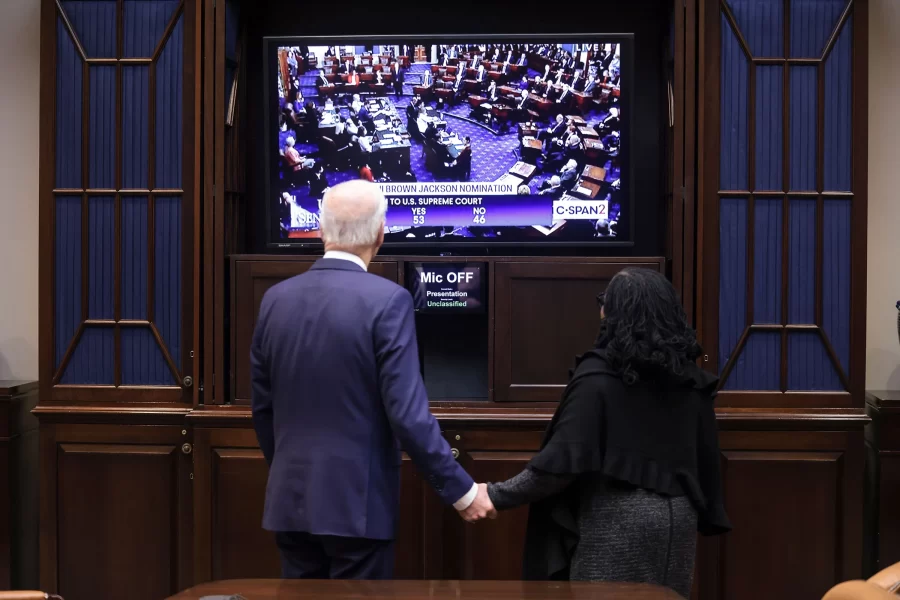Kentanji Brown Jackson Confirmed to the Supreme Court
Last Thursday, the Senate voted to confirm Ketanji Brown Jackson to the Supreme Court of the United States. In a vote that largely fell along party lines, with only three republicans joining democrats, Judge Jackson becomes the first black woman to sit on the highest court in the land. Though not a Justice yet – Jackson has to wait until Breyer officially retires sometime in June or July – her historic confirmation has cemented her name in the history books of the United States.
The journey to confirmation was not an easy one for Jackson, as Republicans attempted to paint Jackson as an extremely liberally justice, who was soft on crime and an “activist judge.” Though these claims stand in stark contrast to Jackson’s judicial record, they were extremely prevalent throughout her confirmation hearings in early March. Republican Senators continually claimed that Jackson has a spotty record when it comes to handing down sentences, specifically in cases involving sex crimes or pedophilia. While Jackson’s sentencing was well within the national average for sentencing commissions, the Republican talking point became incredibly prevalent and overtook all other aspects of the confirmation hearings.
Other Senators took her hearing as an opportunity to air grievances about past Supreme Court nomination hearings. One Senator, in particular, Lindsey Graham from South Carolina, took Jackson’s hearings as a moment to continually bring up the Democrat’s treatment of then-Supreme Court nominee Brett Kavanaugh. During the hearing, Graham went as far as to ask Jackson, “What would you do if we did this to you?” In reference to credible claims that Kavanaugh had sexually assaulted multiple women while a teenager and young adult, which were brung up during his confirmation hearings. Graham, clearly using the hearings as political theatre, ended up not voting for Jackson, despite his support for her earlier nomination to US Circuit courts.
Mitch McConnell, the Senate Minority Leader, has been very open in his efforts to secure a conservative Supreme Court. He refused to allow President Obama a nomination to the Supreme Court in 2016 under the reasoning that it was an election year, and the people should have a say in the next nominee. Despite this precedent that he himself set, McConnell would go on to rush through Amy Coney Barret’s confirmation to the Supreme Court just a few days before the 2020 election. Behind closed doors, McConnell urged as many of his Republican colleagues as possible to not vote for Jackson’s confirmation, but in the end, Senators Romney, Murkowski, and Collins all voted for her confirmation. In a statement issued on social media, Collins stated: “While I do not expect to agree with every decision she may make on the Court, I believe that she more than meets the standard of excellence and integrity.” In the end, the final vote was 53-47, with all Democrats voting in unison.
Jackson watched the final vote at the White House with President Joe Biden. After the vote was confirmed, Biden and Jackson embraced, as the historic nature of the moment washed over those in the room, but also those at home watching on TV. Vice-President Kamala Harris presided over the vote.
In the end, the confirmation and hearings were just another political showcase of the partisan divide within the United States. Republican senators left the room after Jackson was confirmed, which was a distinct demonstration of the inability to achieve cooperation in the current state of American politics. While her confirmation means a lot to many, it was also another example of how far our country still has to go.







